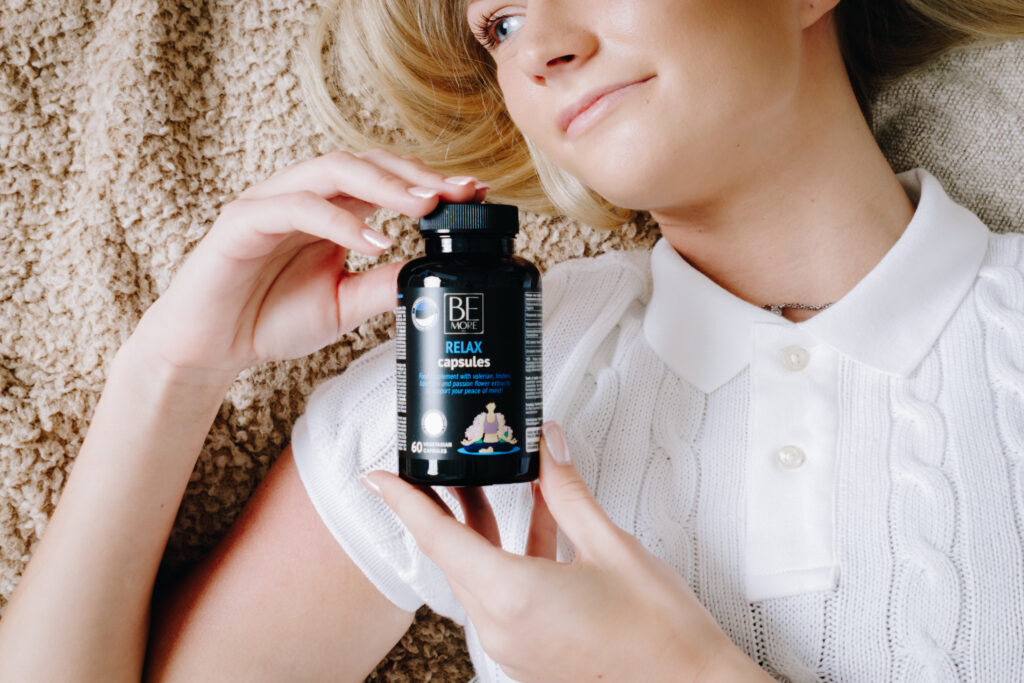Eating habits and mental health: Can diet affect your mental health?
3. November, 2024

Lifestyle
In recent years, research has increasingly focused on how diet impacts not only physical health but also mental well-being. While traditionally it´s been emphasized the benefits of nutritious food for our bodies, we are now beginning to understand just how influential our diets are in shaping our mental health. This exploration of diet and mental health reveals that what we eat can affect our moods, resilience to stress, and overall mental clarity. Let’s dive into how eating habits can either support or undermine mental health, and why nutrition should be considered a foundational pillar in mental wellness.
The gut-brain connection: a foundation for understanding diet and mental health
One reason our food choices affect our brains so strongly is that our gut is actually very closely connected to the brain. The gut is home to trillions of living microbes that have many functions in the body, such as synthesizing neurotransmitters that send chemical messages to the brain to regulate sleep, pain, appetite, mood, and emotion.
One of the most critical discoveries in recent research is the gut-brain axis—a bidirectional communication pathway between the gut and the brain. This connection is heavily influenced by the gut microbiome, a complex network of trillions of bacteria that help digest food, produce vitamins, and interact with our immune system.
- Neurotransmitter production: Certain gut bacteria produce neurotransmitters, like serotonin and dopamine, which regulate mood, cognition, and emotions. In fact, around 90% of the body’s serotonin is produced in the gut, highlighting the profound influence of gut health on mental well-being.
- Inflammation and mental health: Dysbiosis, or an imbalance in the gut microbiota, can lead to inflammation, which has been linked to mental health issues, such as depression and anxiety. This connection underscores the importance of a balanced gut microbiome for supporting mental clarity and emotional stability.
Dietary patterns linked with mental health
Different dietary patterns affect the gut-brain axis in distinct ways, and research has shown that some diets may promote better mental health outcomes than others. Let’s explore:
1. Mediterranean diet
The Mediterranean diet, which emphasizes whole grains, fruits, vegetables, nuts, olive oil, and lean proteins, has shown promise in promoting mental health. One study found that a diet rich in fruits, vegetables, whole grains, and legumes and low in red and processed meats was associated with 10% lower odds of depressive symptoms. Key factors include:
- High antioxidant content: Vegetables, fruits, and olive oil are rich in antioxidants, which combat oxidative stress—a condition linked to mental health disorders.
- Omega-3 fatty acids: Fatty fish, such as salmon and sardines, provide omega-3s that play a critical role in brain function, reduce inflammation, and support neurotransmitter function.
The Western diet, high in processed foods, sugar, refined grains, and unhealthy fats, is associated with higher rates of depression, anxiety, and cognitive decline. Excessive intake of these foods can cause:
- Blood sugar spikes and crashes: Frequent spikes in blood sugar can lead to mood instability, irritability, and fatigue.
- Inflammation: Processed foods, high in trans fats and sugar, trigger inflammatory responses that can disrupt brain health and promote the onset of depressive symptoms.
2. For stress and anxiety: Limit alcohol, caffeine, and sugary foods
There are a few substances in particular that might exacerbate anxiety symptoms: alcohol, caffeine, and added sugars. If you notice you’re feeling particularly stressed or anxious consider reducing your intake of alcohol, caffeine, and added sugars.
Key nutrients for mental health
Specific nutrients can play a vital role in supporting mental well-being, helping stabilize mood, increase resilience to stress, and boost cognitive function.
1. B Vitamins
B vitamins (especially B6, B12, and folate) are essential for brain function and energy production. Low levels of these vitamins have been linked to mood disorders, such as depression and anxiety.
- Sources: Leafy vegetables, beans, fish, poultry, and whole grains.
2. Omega-3 Fatty Acids
Omega-3 fatty acids are critical for brain health. They support neurotransmitter function, reduce inflammation, and are linked to improved mental clarity and a reduced risk of depression.
- Sources: Fatty fish (like salmon), chia seeds, flaxseeds, and walnuts.
3. Magnesium
Magnesium plays a role in brain function and mood regulation, helping calm the nervous system. Deficiency in magnesium has been associated with higher rates of depression and anxiety.
- Sources: spinach, nuts, seeds, and whole grains.
4. Antioxidants
Vitamins A, C, and E, along with phytonutrients in fruits and vegetables, act as antioxidants that reduce oxidative stress, a factor implicated in various mental health disorders.
- Sources: Berries, citrus fruits, leafy vegetables, and brightly colored vegetables (e.g carrots).
5. Tryptophan
An amino acid that contributes to serotonin production, tryptophan is a precursor to this “feel-good” neurotransmitter. A lack of dietary tryptophan may reduce serotonin production, potentially impacting mood.
- Sources: Turkey, eggs, cheese, and nuts.
6. Prebiotics
A diet that includes pre- and probiotics helps maintain a balances state of homeostasis (stability) in the gut. Some research also suggests they may play a role in the body’s response to stress and depression.
- Sources: fermented foods: yogurt, kefir, kimchi, sauerkraut, tempeh, kombucha
Relax is meant for reducing anxiety and helps to keep you calm

For those looking to support mental well-being naturally, Be More supplement Relax offers a blend of herbal extracts and essential vitamins designed to promote calmness and relaxation. With ingredients like valerian root, traditionally known for its calming effects, and passionflower, which may aid in reducing mild anxiety, Relax aims to help ease stress without causing sleepness. Linden flower and hawthorn add further soothing properties, potentially supporting cardiovascular health as well. Enhanced with vitamins B12 and D3, known to benefit mood and energy levels, Relax combines these natural elements to provide a gentle, holistic approach to stress management.
Used source: https://www.healthline.com/nutrition/diet-and-mental-health-can-what-you-eat-affect-how-you-feel